South Africa Marikana inquiry: Cyril Ramaphosa heckled
- Published
Cyril Ramaphosa is heckled as he gave evidence at the inquiry
South Africa's Deputy President Cyril Ramaphosa has been heckled at an inquiry into the shooting dead of 34 striking miners by police in Marikana.
At the time of the shooting in 2012, he was a director of the Lonmin firm which owns the Marikana platinum mine.
He was not a member of government and was accused of putting pressure on police to take action against strikers.
But he told the inquiry he instructed the police to protect lives and arrest miners who had committed crimes.
The commission of inquiry was set up by President Jacob Zuma soon after the shooting in August 2012 to determine the roles played by the police, the management of Lonmin, the unions and the government during a month of unrest at the mine.
Angry chants
During the deputy president's testimony, protesters disrupted proceedings at the commission hearing in the capital, Pretoria.
"Blood on his hands, Ramaphosa must go," a crowd chanted inside the packed room, leading to a brief adjournment.
Mr Ramaphosa was testifying about a call he had made to then-Police Minister Nathi Mthethwa regarding the unofficial strike.
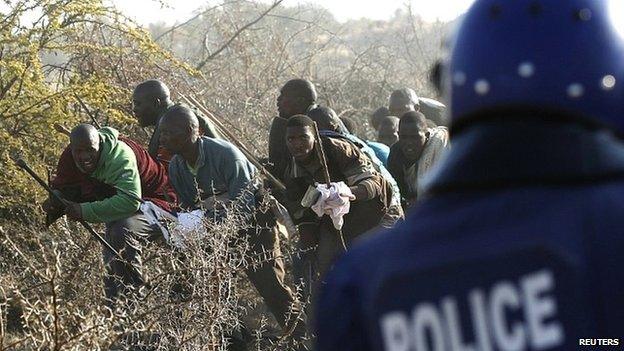
The Marikana massacre is the most deadly police action since the end of white minority rule in 1994
"I felt duty bound to try and help, to see the extent to which one could communicate to those in authority," Mr Ramaphosa said.
He said he had had the conversation with Mr Mthethwa on 12 August 2012 - four days before the police opened fire on some strikers.
In the week before, 10 people, including two policemen and two Lonmin security guards, had been been killed in protests.
Mr Ramaphosa, who was a senior member of the governing African National Congress (ANC) at the time, made the call after receiving an email from Lonmin colleague Albert Jamieson requesting help.
"I urge you to please use your influence to bring this over to the necessary officials who have the necessary resources at their disposal," an extract of the email read.
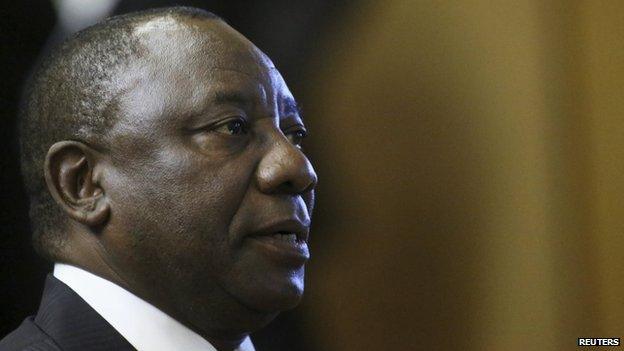
During white minority rule, Cyril Ramaphosa established the National Union of Mineworkers
Mr Ramaphosa said he passed on the concerns raised in the email: "He had requested more police presence. I told the minister that they [Lonmin] needed help."
The BBC's Pumza Fihlani in Johannesburg says some believe that with Mr Ramaphosa's background as former union leader he could have done more to help resolve the tensions during the strike.
The striking miners were demanding higher wages and eventually returned to work after accepting a pay rise of up to 22%.
The Marikana issue has been a blemish in an otherwise spotless reputation enjoyed by the ANC politician and businessman, who became deputy president in May, our correspondent says.
The shooting - known as the Marikana massacre - is the most deadly police action since the end of white minority rule in 1994.
The police involved said they opened fire after being threatened by strikers carrying weapons such as knobkerries (clubs), machetes and spears, as well as firearms.
- Published15 August 2013
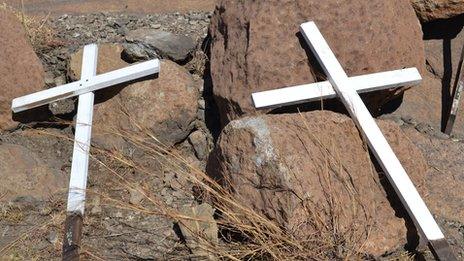
- Published16 August 2013
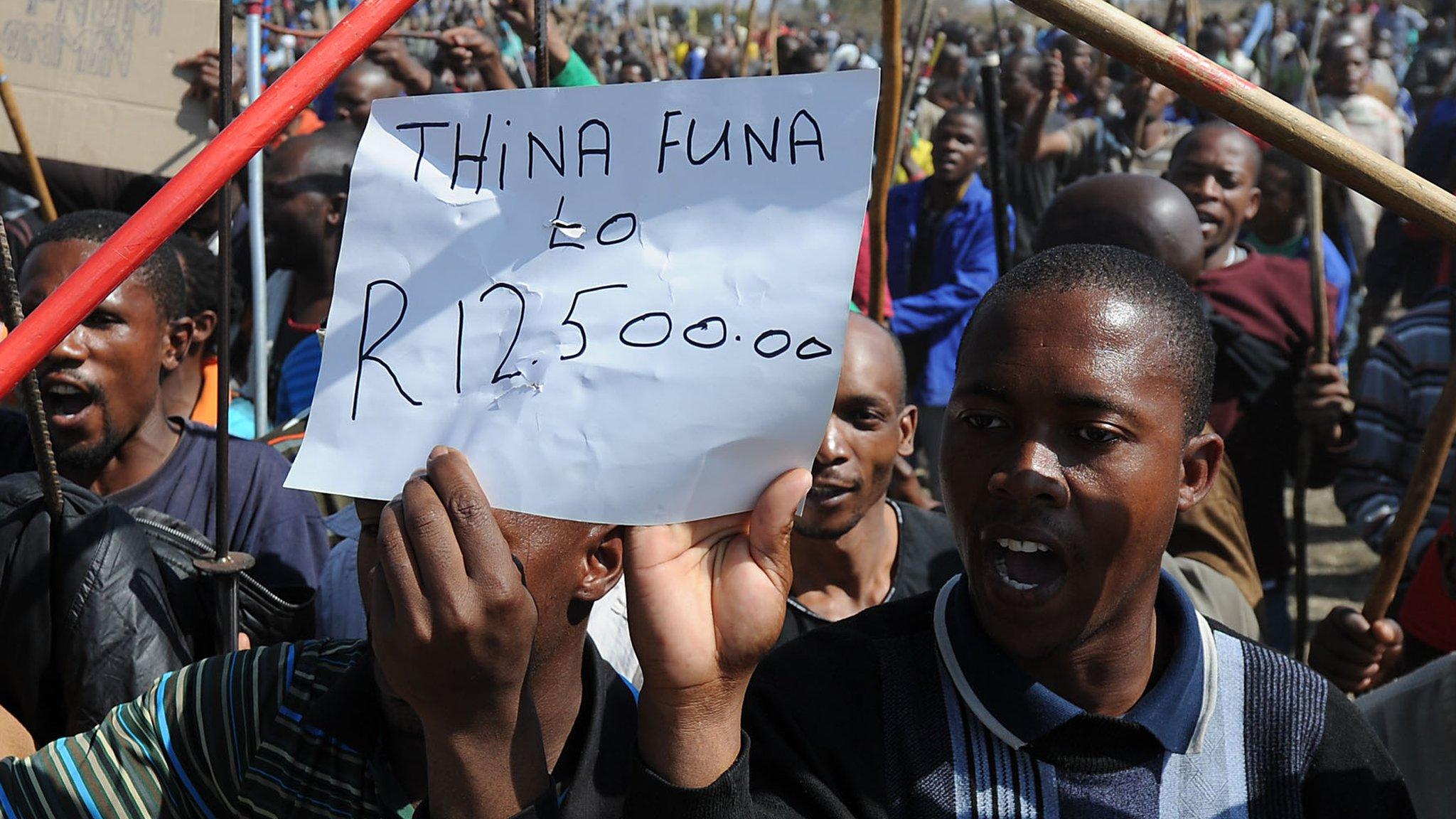
- Published21 April 2013
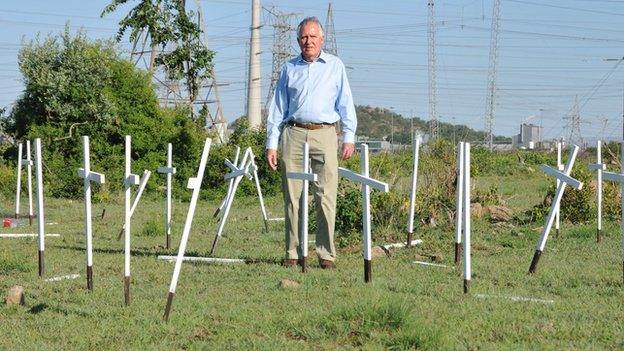
- Published20 September 2012
- Published18 September 2012
- Published12 September 2012
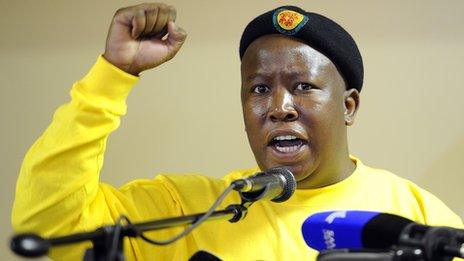
- Published8 September 2012
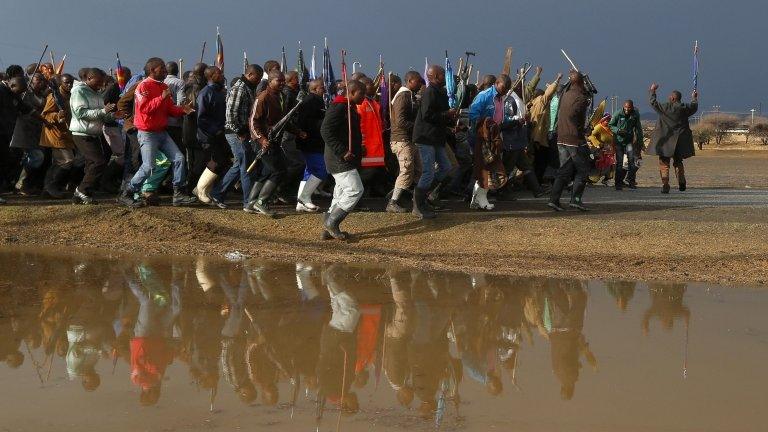
- Published13 September 2012